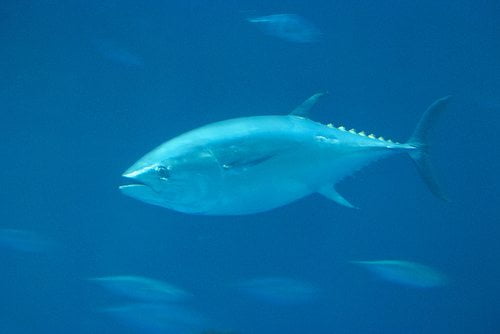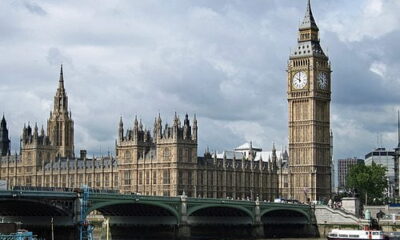

Economy
Greenpeace: John West is breaking its promise to consumers for cheap tuna
Greenpeace’s tuna league table for 2015 sees the UK’s largest tinned tuna brand, John West, sink to the bottom of the ranking, with a woeful 98% of its tuna caught using destructive and unsustainable fishing methods.
After promising consumers back in 2011 that 100% of its tuna would be sustainable by 2016, John West has managed only a dismal 2% – with nearly all of its tuna caught in nets using so-called Fish Aggregating Devices (FADs) which indiscriminately kill a host of other marine life, including sharks and even endangered sea turtles.
With all major UK supermarkets and brands ranked, Greenpeace’s tuna league table assesses sustainability levels, fishing method, supply chain traceability, legality, protection of local workers and other factors.
Ariana Densham, Oceans Campaigner at Greenpeace UK, said John West is “plumbing the depths of irresponsibility”: “In 2011 John West guaranteed consumers its tuna would be 100% sustainable by 2016 – but with little over a year to go, a pathetic 2% of its tuna is caught in a way which minimises harm to other marine life. It’s clear John West has no intention of keeping its sustainability promise.
“It’s a great achievement that all major supermarkets in the UK now only use fully sustainable tuna in their own brand products, caught using the pole and line method or in nets without FADs, which minimises harm to other animals. But John West continues to plumb the depths of irresponsibility – flooding our shelves with cheap tuna which comes at a huge cost: the indiscriminate killing of marine life. It’s also undermining the world-leading standard set by UK supermarkets.
“The tide is turning on companies which sell unsustainable tuna and unless John West keeps its promise to UK consumers to stop using destructive fishing methods, it will find itself cast adrift.”
Waitrose Aquaculture and Fisheries Manager, Jeremy Ryland Langley, said: “We are delighted that our efforts in ensuring we offer sustainable and ethical tuna to customers has been recognised. All of our canned tuna is pole and line caught and clearly marked as Marine Stewardship Council certified, including all the tuna in ready-prepared products such as sandwiches and pâtés. In addition all skipjack tuna used as an ingredient in any Waitrose product is also Marine Stewardship Council certified. Sustainability is at the very heart of what we do and we are proud to be market-leading.”
Aldi’s Managing Director of Buying, Jonathan Neale, said: “We are pleased to receive this recognition from Greenpeace for our tuna policy. “Sourcing fish in a responsible way is really important to us and to our customers. We work with our suppliers and a range of organisations, such as Greenpeace, the Sustainable Fisheries Partnership and the Marine Stewardship Council, to drive continuous improvements for fisheries and aquaculture. “Having met our 2016 target a year early, Aldi UK and Ireland now sources all canned tuna using only responsible methods that minimise the impact on endangered species, such as sea turtles.”
Marks and Spencer said: “Sourcing ethical and sustainable seafood is something we’re passionate about at M&S so we’re thrilled to feature within the top 2 of the Greenpeace league table. Not only do our customers expect us to source responsibly, but the future of the world’s fisheries depends on it. Tuna is a popular choice with our customers and we work very hard to bring them the highest quality products from fisheries and suppliers we know and trust.”
Tesco said: “We want to ensure that our customers can buy seafood that is both sustainable and affordable. We continue to work hard with our supplier partners and our experts to achieve this”
Ally Dingwall, Aquaculture & Fisheries Manager at Sainsbury’s said: “We’re delighted that our efforts to improve the sustainability of our tuna have been recognised by Greenpeace and have encouraged others to follow our lead. We hope further progress can be made within the sector to make our oceans safer for marine species.”


 Features9 months ago
Features9 months agoWhat is the Eco-Friendliest Option to Wash Your Dishes?

 Environment12 months ago
Environment12 months agoBuilding a Career in Green Construction: Tips and Insights

 News11 months ago
News11 months ago5 Ways Fleet Maintenance Software Can Help Businesses Be More Eco-Friendly

 Features10 months ago
Features10 months agoAddressing Pressing Ethical Concerns with Crypto Exchanges





























